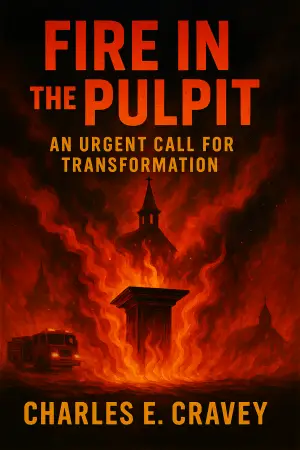Book Review: Lapvona: A Novel by Ottessa Moshfegh
From the moment I first heard about Lapvona, I felt an undeniable pull. As an admirer of Ottessa Moshfegh’s unique storytelling ability—a blend of the grotesque and profound—I was eager to dive into this darkly enchanting world. The synopsis of a motherless shepherd boy navigating a perverse village gripped my curiosity, and I knew I was in for a rollercoaster ride through a haunting yet captivating narrative.
Set in the bleak, oppressive village of Lapvona, Moshfegh masterfully unveils a tapestry woven with themes of desperation, power, and the unsettling intersections between love and cruelty. Little Marek, the protagonist, is not just a victim of his circumstances but a lens through which we witness the moral decay and absurdity of the people around him. His relationship with the blind midwife, Ina, provides a glimmer of tenderness amid a landscape littered with suffering and brutality—a stark contrast that tugged at my heartstrings.
What struck me most was Moshfegh’s audacity to confront the darker sides of human nature. The writing is visceral, often forcing readers to confront discomforting scenes that linger long after the page is turned. For instance, consider the way she depicts societal hierarchies—Marek’s father, the cruel Jude, and the debauched lord Villiam embody the worst aspects of power dynamics, hoarding resources while their villagers starve. In Moshfegh’s hands, the medieval setting feels distressingly contemporary, echoing the inequities of our own time.
Moshfegh’s dialogue is as sharp as ever, brimming with absurdity and dark humor, creating a rhythmic dance between the grotesque and the profoundly relatable. My favorite moments often came from the interactions among the townspeople, which are rife with misunderstandings and a painful longing for hope amidst the chaos. One reviewer encapsulated this beautifully when they noted, "There are no ‘good’ and ‘bad’ people in this book." The complex, layered characters kept me guessing, narratively forcing me to question my own notions of morality.
It’s important to be prepared for the book’s intensity—it is, at times, stomach-churning. As one reviewer aptly mentioned, it might be off-putting to those who shy away from graphic depictions. Still, if you embrace the uncomfortable, you will find a reward in the heart of the story. Moshfegh invites introspection, compelling us to explore the human condition in all its messy glory.
In the end, Lapvona isn’t just a story of survival; it’s a poignant exploration of faith, desperation, and the haunting specter of human depravity. It’s a book I would recommend to readers who appreciate the darker nuances of literature and those willing to confront the unvarnished truths of our existence.
For me, reading Lapvona was an experience—intense, disturbing, yet utterly transformative. It’s a narrative that will stick with me, challenge me, and perhaps even inspire me to look at the world through a slightly sharper lens. If you’re ready to walk this perilous path with Marek and the inhabitants of Lapvona, prepare yourself for a journey that’s as unforgettable as it is unsettling.






